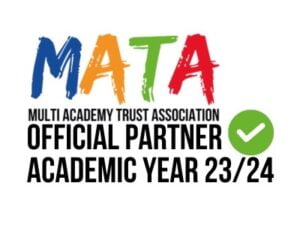The Reality of Headship
The transition to headship is no easy task, and let’s face it, no-one truly prepares you for it. Who develops teachers into headteachers? Often, we’re expected to learn on the job, but are we ever fully equipped for the roles and responsibilities of headship? Recognising this gap, we’ve designed a training programme that delves into the key principles of headship, focusing on the reality and practicality of the role.
Whether you’re aspiring to lead a school or are an experienced headteacher still navigating the challenges of the position, this programme offers something for everyone.
The Reality of Headship training programme is designed to prepare you for the real challenges, unexpected demands, and day-to-day decisions that come with leading a school.
What we focus on:
- Leading with clarity under pressure
- Navigating difficult conversations and conflict
- Building a culture of accountability and trust
- Making tough calls when no option is perfect
- Balancing vision with operational demands
This isn’t textbook theory. It’s practical, honest, and grounded in the real-life experiences of current and former school leaders.
Whether you’re stepping into headship soon or considering your next move or even an existing Headteacher wanting to up-skill, join us to build the confidence, mindset, and practical tools to lead effectively from day one.
The Modules
Learning Outcomes:
Understand the multifaceted role of a headteacher.
Identify key areas of responsibility, including strategic leadership,
operational management and community engagement.
Content:
Strategic leadership and vision.
Operational and administrative tasks.
Legal and statutory obligations.
Building relationships with stakeholders.
Learning Objectives:
Understand the statutory duties of a headteacher.
Ensure compliance with safeguarding, health and safety, and curriculum
requirements.
Content:
Safeguarding responsibilities.
Health and safety regulations.
National Curriculum requirements.
Reference: Education Act 2002 and Keeping Children Safe in Education
(KCSIE).
Learning Objectives:
Understand the headteacher’s role in managing the school’s budget effectively.
Learn the principles of financial management and budgeting in schools.
Develop skills to allocate resources strategically in alignment with the school’s priorities.
Analyse and monitor income and expenditure to ensure financial sustainability.
Work collaboratively with governors and finance teams on budget planning and oversight.
Understand compliance with financial regulations and accountability standards.
Content:
Introduction to School Budgeting
Principles of Financial Management
Budget Planning and Allocation
Monitoring and Evaluating the Budget
Collaboration with Governors and Finance Teams
Managing Risks and Challenges
Compliance and Accountability
Maximizing Income and Efficiency
Reflective Practice and Financial Improvement
Learning Objectives:
Understand the statutory framework and legal requirements for school admissions.
Learn the roles and responsibilities of headteachers, governors, and local authorities in
the admissions process.
Develop strategies to ensure fair, transparent, and inclusive admissions practices.
Manage oversubscription criteria and appeals effectively.
Communicate admissions policies and processes clearly to parents and the school
community.
Analyse demographic trends and their impact on school admissions planning.
Content:
Introduction to School Admissions
Roles and Responsibilities
Roles and Responsibilities
Managing Oversubscription
Admissions Appeals Process
Effective Communication with Parents
Demographics and Planning for Admissions
Learning Objectives:
Understand HR Fundamentals for Schools
Develop People-Centered Leadership Skills
Lead Strategic Workforce Planning
Promote Equity and Inclusion:
Handle Difficult Conversations Effectively
Ensure Legal and Policy Compliance
Understand Well-Being in the Workplace
Content:
HR Management in Education
Recruitment and Retention
Professional Development
Conflict Resolution and Difficult Conversations
Staff Well-Being and MoraleHR
Policies and Legal Compliance
Learning Objectives:
Understand the role of staff development in improving school outcomes.
Design and implement a strategic professional development plan.
Develop leadership capacity through mentoring and succession planning.
Monitor and evaluate the effectiveness of staff development initiatives.
Content:
Role of Staff Development
Strategic Development Planning
Leadership Development
Delivering Effective CPD
Coaching and Mentoring
Evaluating Impact
Learning Objectives:
Understand the structure and role of school governance in driving strategic direction.
Build effective relationships with governors and trustees.
Develop skills to communicate school performance and needs effectively.
Understand governance responsibilities, including accountability, safeguarding, and
compliance.
Collaborate with governors on strategic planning, budget management, and policy oversight.
Balance governance and operational responsibilities as a headteacher.
Content:
Understanding School Governance
Building Effective Relationships
Strategic Planning and Vision Setting
Governance and Accountability
Governance and Safeguarding
Policy and Compliance Oversight
Effective Communication with Governors
Learning Objectives:
Understand the principles of performance accountability in education.
Explore the headteacher’s role in driving accountability for pupils outcomes, staff
performance, and school improvement.
Develop skills to use data effectively for monitoring and evaluating performance.
Manage external accountability requirements, including inspections and
reporting.
Build a culture of shared accountability across the school community.
Content:
Introduction to Performance Accountability
Roles and Responsibilities
Using Data to Drive Accountability
Setting and Monitoring Targets
Staff Performance and Appraisal
External Accountability Requirements
Creating a Culture of Shared Accountability and Managing Challenges in
Accountability
The Reality of Headship (SEND)
We also have a variation of this course that is specifically designed for those wishing to step into, or are currently involved in, leadership within a SEND environment. Much of the content and principles are the same as the above Reality of Headship course, but with slight tweaks and adjustments to make it specifically relevant for the unique demands of a job in SEND. If you are interested in this particular path, speak to us to find out more information and we’d be more than happy to discuss!
In the meantime, whichever path you’re interested in, keep an eye out for the full course(s) to go live soon.
If you’d like to get in touch to find out more, please drop us a line via our Contact page.





